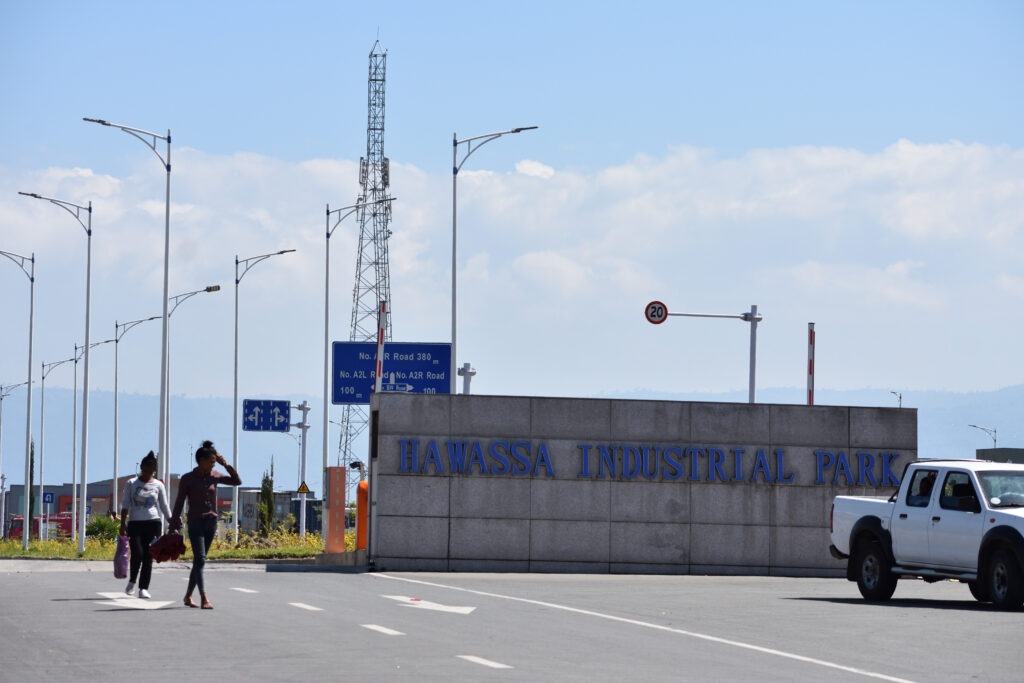20 October, 2021Ethiopian unions fear that millions of jobs will be lost if the United States withdraws the country’s eligibility for the African Growth and Opportunity Act (AGOA) which gives duty-free access to the country’s textile, garments, shoe, leather and other products.
AGOA, which gives special access to US markets for 6,500 products from Sub-Saharan African countries is set to expire in 2025. These products include textiles and garments, motor vehicles and parts, leather products, chemicals, machinery and equipment, agricultural products, and other goods.
Under AGOA, Ethiopian exports to the US increased from US$29 million in 2000 to US$525 million in 2020. However, the balance of trade still favours the US whose exports to Ethiopia increased from US$165 million to US$868 million in the same period.
Garment manufacturing is the largest beneficiary under AGOA and over 80 per cent of workers in the sector are young women.
In an online meeting with Ethiopia’s trade negotiator, Mamo Mihretu, the United States trade representative ambassador Katherine Tai, “raised the ongoing violations of internationally recognised human rights amid the ongoing conflict in Northern Ethiopia, which could affect Ethiopia’s future AGOA eligibility if unaddressed”.
Angesom Gebre Yohannes, president of IndustriALL affilaite, the Industrial Federation of Textile Leather and Garment Workers Trade Union (IFTLGWTU) says:
“If AGOA benefits stop, workers will be badly affected. Factories, which includes the PVH factory in Hawassa Industrial Park that exports primarily to the US, will be forced to close and workers will lose their jobs. This is not in the interests of the union. Workers at PVH are anxious about their future and expressed worry when they got the news on AGOA.”
The PVH factory is the largest in the industrial park and recently the IFTLGWTU has been on a recruitment and organizing drive after a breakthrough following years in which unions were not allowed to recruit in the park. Other factory owners are from Europe and Asia and brands that include Children’s Place and Levi Strauss & Co. source from the park.
In a letter to the ambassador, Kassahun Follo, president of the Confederation of Ethiopian Trade Unions (CETU) to which IFTLGWTU is also affiliated, wrote:
“As a progressive trade union organization committed to human rights, peaceful resolution of differences and respect for universal democratic values, our confederation condemns in no uncertain terms human rights violations all over Ethiopia, and the perpetrators of the violations. We also recognize the importance of AGOA eligibility requirements on the protection of internationally recognised workers’ rights. Our confederation, however, firmly believes that removing Ethiopia from the AGOA eligibility list at this time will make things worse for Ethiopian workers and their families.”
Follo states in the letter that the textile, garment, shoe, and leather sector, has created over 200,000 direct jobs and over a million indirect jobs which are now at risk. Ethiopia’s industrial policies have prioritised export-based manufacturing which is seen as having potential to create jobs for hundreds of thousands of young workers.
Atle Høie, IndustriALL general secretary says:
“Trade union rights violations have to end. Withdrawing AGOA now will put in jeopardy the work we have done with our Ethiopian affiliates over the last years, but the threat is also a very clear warning to Ethiopian authorities that they have little time to secure fundamental trade union rights.”
